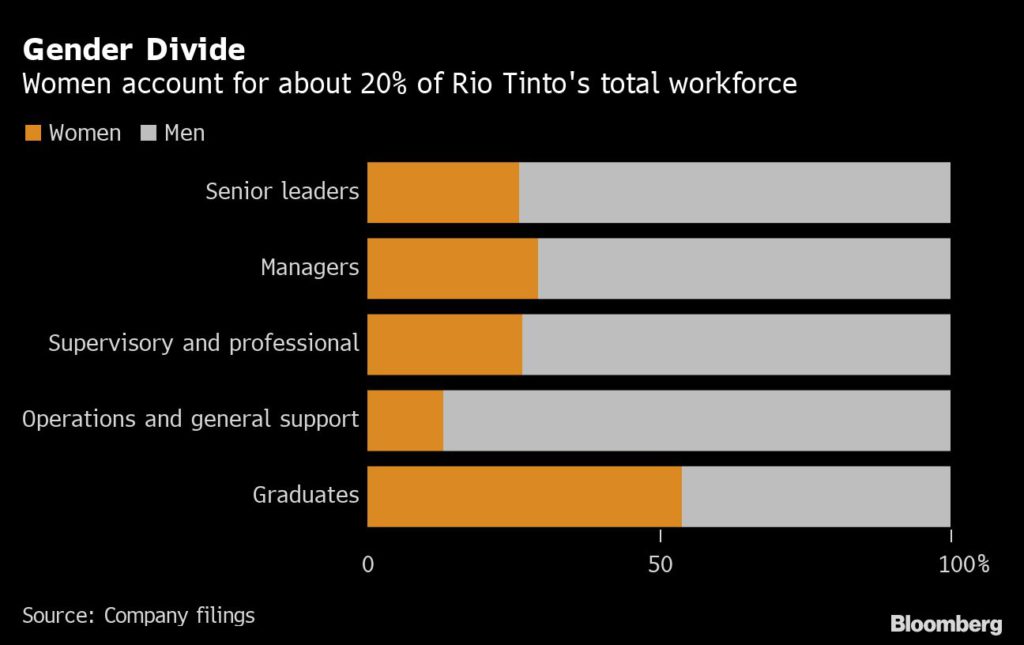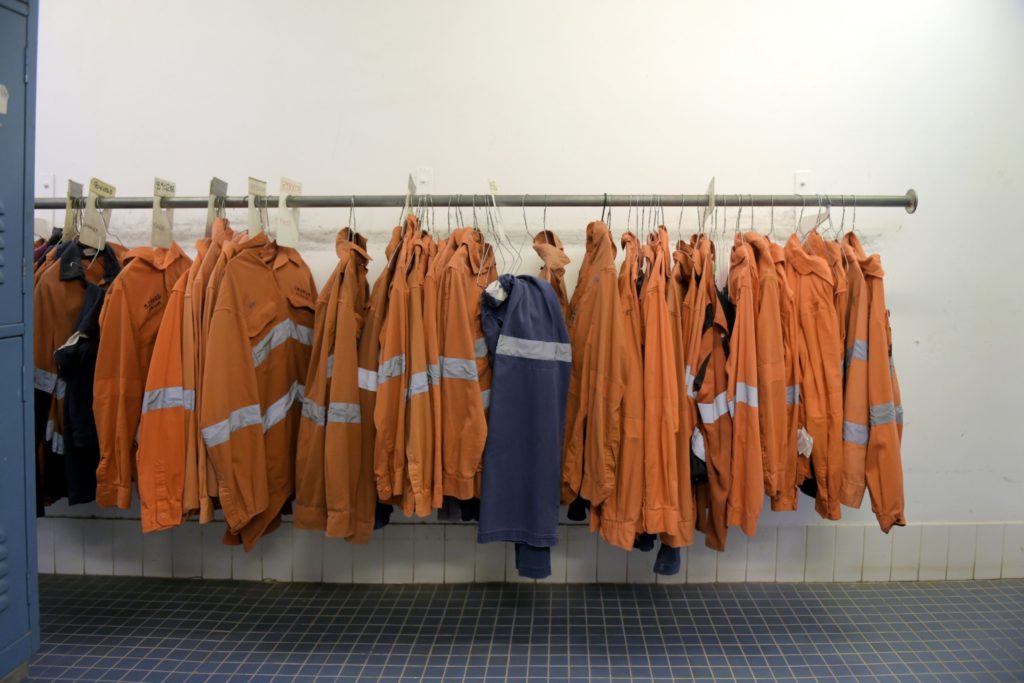(Bloomberg) – More than a quarter of female workers at Rio Tinto Group have experienced sexual harassment and almost half of all staff have been victims of bullying, according to a new report that’s set to raise fresh investor questions over the mining giant’s governance.
A total of 21 women reported actual or attempted rape or sexual assault at company sites over the past five years, and racism was found to be widespread across operations in Australia and South Africa. The report is the result of a company-commissioned study that surveyed more than 10,000 employees on workplace culture.
“The findings of this report are deeply disturbing to me and should be to everyone who reads them,” Jakob Stausholm, London-based Rio Tinto’s chief executive officer, said in a statement. “I feel shame and enormous regret to have learned the extent to which bullying, sexual harassment and racism are happening at Rio Tinto.”
Coming less than two years after the world’s second-largest miner apologized for the destruction of ancient Aboriginal Australian heritage sites, the latest revelations over the extent of Rio Tinto’s toxic work culture threaten to stoke new investor unrest. The 2020 explosions at an iron-ore site, which buried a record of life dating back more than 40,000 years, prompted demands for sweeping changes and the exit of top executives including Stausholm’s predecessor.
The external review, initiated last year after a spate of reports over misconduct at remote mine sites in Western Australia, will also undermine the industry’s often loudly proclaimed ambitions to achieve better gender balance in historically male-dominated workforces and to champion broader diversity aims.
Rio, which promoted Stausholm to help mend its reputation, said it would implement all 26 recommendations contained in the findings of a team led by former Australian Sex Discrimination Commissioner Elizabeth Broderick. Measures include making worker camps safer and creating an environment where people feel secure to report unacceptable behavior.
While the study covered Rio workplaces in locations including Canada, the U.S., Mongolia and Singapore, most attention will be focused on Australia, which is home to iron ore mines that generate the bulk of profits and where almost half of the firm’s 45,000 staff and contractors are based. About 20% of Rio’s workforce is female, according to the firm’s most recent annual report.
Read more: Mining Giants Face a Sexual Harassment Reckoning as BHP Fires 48
Western Australia’s parliament in July announced an inquiry into sexual harassment in the state’s fly-in-fly-out mining industry, with public submissions from operators, unions and individuals pointing to an endemic culture of sexism. The five-member panel is due to publish its findings in April.
The country’s political establishment has also been rocked by a series of sexual misconduct allegations. In November, a report on workplace culture in the national parliament and other government offices found that one in three employees had suffered sexual harassment. Prime Minister Scott Morrison ordered that inquiry after thousands of women rallied to protest against sexual violence and his government’s handling of gender issues.
Some of the country’s biggest investors, including AustralianSuper and Health Employees Superannuation Trust, are increasingly taking a zero-tolerance approach to poor corporate culture. Both funds were among those that pushed for the resignation of Rio executives after the heritage site destruction.

The industry’s remote mines can be especially risky for women. They remain largely male-dominated, with workers living in camp-style accommodation that blurs the line between work and social life. However the study also heard complaints from staff in Singapore, a predominantly office-based location.
Respondents to Broderick’s eight-month-long review, which included an online survey, one-to-one meetings and small discussion groups, described an atmosphere where derogatory comments and physical intimidation were commonplace.
“One man said to me: ‘It’s a biological fact that women are not as good at maths as men. That’s why there aren’t as many women engineers,’” said one survey respondent. An operations manager said she had been referred to by colleagues as a “token woman” despite being highly qualified for the role.
The study also found that people working in a country different to their birth experienced high rates of racism, while nearly 40% of men and over 30% of women identifying themselves as Aboriginal or Torres Strait Islander in Australia had been subject to racism. The report also said bullying behavior had become “normalized” in many workplace settings.
While Rio was making progress in tackling theses issues “the challenge now is to ensure that this cultural shift is replicated at all levels of the organization,” the report said.
Among its recommendations: Rio should bolster its investigations process into allegations of harmful behavior, strengthen its support for victims of abuse, improve education programs across the workforce, and better monitor performance metrics for progressing cultural change. (Updates with survey responses in 13th paragraph.)
- With assistance from Jason Scott.© 2022 Bloomberg L.P.











